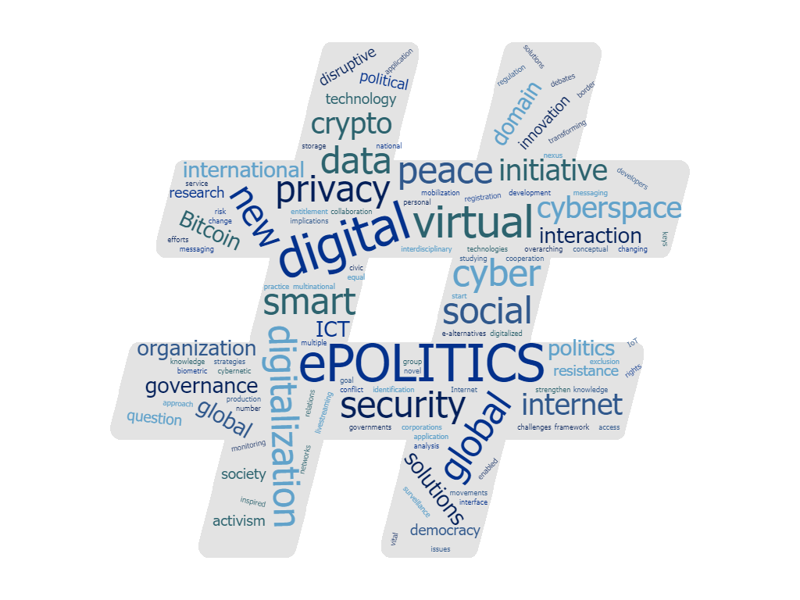How are new digital and cybernetic technologies transforming the nature of society, politics and human organization?
This question is vital to a number of contemporary social challenges and issues of global peace and international security. This is also the question that inspired the Security research group at PRIO to launch the ePOLITICS initiative. The aim of the initiative is to strengthen research collaboration and build capacity on research topics such as biometric identification and border security, conflict and cooperation in cyberspace, innovation in e-governance technologies, digital monitoring and surveillance, cyber activism, digital democracy, and the global Internet of Things.
The overarching goal of the ePOLITICS initiative is to develop a conceptual framework for comprehensive interdisciplinary study and novel analysis of the propensities of digital technology to change the nature of society and political life as we know it. Key topics are the interaction between the digital, the social and the political, the relationship between ICT, digital technology and social organization, the nexus between digital practice, technological development and human interaction, digital knowledge production, the international politics of the digital, cyberspace regulation and international relations, the Internet of Things and global standardization, and disruptive forms of digitalization such as crypto-currencies.
The domain of digital politics has become central to the study of peace and security. ePOLITICS takes a comprehensive approach to the study of the digital-social-political interface, paying equal attention to e-governance, virtual and digital resistance, digital democracy efforts and new movements for e-alternatives, and reviews multiple ways of studying digitalization and its implications for socio-political organization. The initiative spans a variety of e-governance strategies and manifestations in the Global North and South alike, from the ‘new digital nation’ of Estonia to ‘Digital India’. ePOLITICS covers the role of multinational IT corporations in assisting governments in the application of digital solutions and ‘smart’ service provision, and contemporary debates on privacy, risk, entitlement, rights and access as related to the registration, storage and use of digitalized personal data. The initiative will also review new forms of civic activism enabled by digital networks and mobilization, the appeal of instant digital interaction such as social messaging and livestreaming, and new forms of social exclusion in the ‘digital shadow’.












